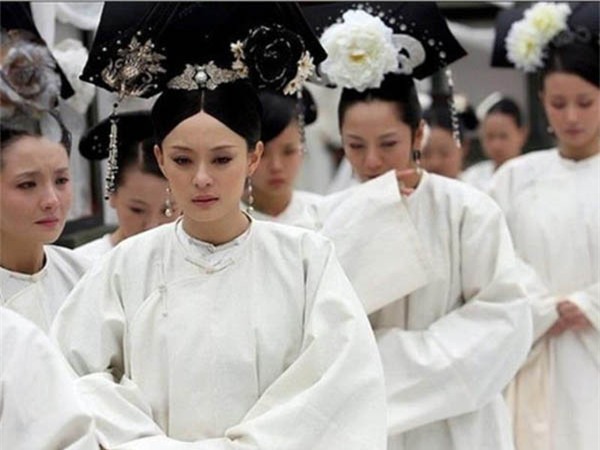Becoming the Empress Dowager
The best outcome for a concubine in the imperial harem is probably to be bestowed the title of Empress Dowager. The concubine who gives birth to the emperor’s heir is likely to be honored as the Empress Dowager, enjoying all sorts of privileges and the emperor’s respect.
The Empress Dowager does not necessarily have to be the biological mother of the reigning emperor. Her previous position could be the Empress or the favored concubine of the former emperor or the highly respected consort of the reigning emperor.

Returning home after leaving the palace
For concubines who do not become Empress Dowager, there is a compassionate alternative, which is to allow them to leave the palace and return home. This is something that almost every concubine desires.
Their purpose of entering the palace is to serve the emperor, and now that the emperor has passed away and they themselves do not hold high positions, they choose to leave and go back to their families. In those days, once a woman entered the imperial palace, there was almost no way out. So if the reigning emperor grants the special privilege of returning home, almost everyone would appreciate and seize the opportunity.
Staying in the imperial harem
The concubines of the deceased emperor can also be retained in the imperial harem and not belong to anyone. This is a sign of respect from the new emperor to the “possessions” of the former emperor.
The concubines of the former emperor will have a peaceful life, not prestigious or favored, but peaceful, living their remaining days quietly in a corner of the imperial harem, enjoying a calm and peaceful lifestyle.
Of course, for ambitious concubines craving power, this life is like a prison.

Going to the mausoleum for the emperor
After the emperor’s death, the concubines may be sent to live around the mausoleum area. No one wants their life to be associated with the resting place of the dead. But this is the order of the new emperor, so there is no choice but to comply.
They have to leave the familiar imperial palace to go to the gloomy and cold area near the tomb. Their daily lives become harsh and lonely, completely different from their once prosperous lives. This custom can be considered as extremely cruel, taking away the freedom and hopes of many women.
Becoming a concubine of the new emperor
The new emperor can also take the concubines of the former emperor into his own harem. This gives rise to ethical debates, but in the game of power in feudal times, the status of women was extremely low. They were just like objects. If the new emperor approves of them, they can continue to be his concubines in his harem, otherwise, they have to accept different outcomes.

Burial alive
The most tragic fate is for a concubine to become a burial object. They are forced to die alongside the emperor and be buried in the same tomb, accompanying him to the afterlife.
Throughout the long history of feudal China, countless women have become victims of this burial practice, burying themselves in the horror of the tomb.



































